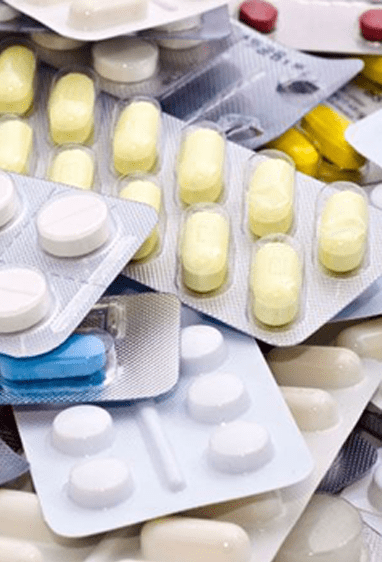When a doctor prescribes medicines for you in order to treat a medical condition they set the dose and the length of time plus the number of pills the patient should take. Why is it then that an estimated £300 million is wasted in medicine that isn’t taken by patients? If the patient doesn’t complete the course the drugs should be returned to a pharmacy for safe disposal. With recent news in the press about the failure of people to complete anti-biotic prescriptions and the costs of wasted drugs on the cash-strapped NHS, Citron Hygiene has sponsored a survey to find out from the public what is happening to their left-over drugs.
Table of Contents
Results of our medicine disposal survey
The survey tells an interesting story about the current state of people’s approach to medicine they are prescribed. Overall only 65% said that they completed the course of medicine no matter what. 28% tried to complete the course but admitted to forgetting to take the odd one. 4% of people only took the medicine if they thought it was absolutely necessary and 3% stopped taking the medicine once they felt better. The failure of people to take the full course of drugs is a major contributor to the developing antibiotic resistance exhibited by today’s bacteria. Bacteria exposed to drugs, but not killed entirely by them can actually evolve their genetic make-up and in this way become resistant to the drugs that are designed to kill them. The problem isn’t simply caused by patients not taking full courses of drugs, unnecessary prescription of antibiotics (for example to treat a virus when this is not the correct treatment) and use of antibiotics in animals are all drivers of what some are calling an antibiotic apocalypse.
There was a marked difference in the survey between those who are on regular medication and those who only get occasional prescriptions. Only 0.8% of those on regular medication didn’t take the medication unless they thought it was absolutely necessary. This compares to over 7% of people on occasional prescriptions. People taking regular medication were 14% more likely to always complete the course regardless.
With the large numbers of people not completing all of their prescriptions, the survey asked what people did with the unused medicines. It turned out that less than half the people do the right thing and take the unused drugs to their pharmacy. The most popular alternative to taking them to a pharmacy for disposal was simply to throw them in the bin (24%). However 18% saved the left over drugs for next time they get ill. A dangerous state of affairs as it combines the risks of self-diagnosing with possibly out of date drugs. The result could be very harmful.
In terms of causing harm 5% of people chose to flush unwanted medicines down the toilet. Putting medicines into the environment can be very damaging as sewage treatment works are not designed to remove pollutants like drugs from the water supply. This is even more an issue areas such as the South East of England where 70% of the drinking water comes from groundwater boreholes and the remaining comes from rivers and reservoirs.
Disposal of unwanted medicines
What is clear from the results of the survey is that the majority (56.7%) of unused prescription drugs are not being disposed of properly. Some of these drugs may actually fall under the category of controlled drugs that should be rendered unusable through the use of a CODE kit such is their potentially dangerous nature. What is needed is further education of the people being issued with prescriptions of the importance of completing their prescriptions, especially in the light of growing antibiotic resistance, and for those drugs that are not used people should know that the pharmacy is the place to take these.
